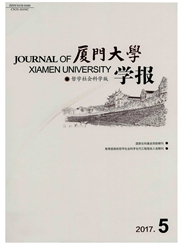

 中文摘要:
中文摘要:
衍生工具在国内外日益受到实务界及学术界的关注。以我国2007年至2011年间具有潜在风险敞口的A股非金融类上市公司为样本,研究企业使用衍生工具的动机和风险管理效果。结果表明:现金流波动性大的企业更倾向于使用衍生工具;非国有企业使用衍生工具后可以有效降低现金流波动性,而国有企业使用衍生工具管理现金流波动性的效果不明显;衍生工具与盈余波动性之间关系不显著。这些结果综合说明,企业使用衍生工具更多是基于现金流波动性的考虑,并且国有企业与非国有企业衍生工具使用效果存在一定的差异。
 英文摘要:
英文摘要:
Derivatives have become an imperative business practice in recent years. By taking advantage of the quasimandatory disclosure setting in China,this paper investigates the motivation of the use of derivatives and tests whether the use of derivatives can decrease firm risks. With the control of endogeneity by PSM and the change model,we find that:firms with high cash flow volatility in the past are more likely to use derivatives. After using derivatives,NSOEs indeed reduce their cash flow volatility,but this effect does not exist in SOEs. Additionally,the use of derivatives has no effect on earnings volatility for both SOEs and NSOEs. Overall,our results demonstrate that firms choose derivatives on the basis of their cash flow volatility. The effect of derivatives on risk management is different between SOEs and NSOEs.
 同期刊论文项目
同期刊论文项目
 同项目期刊论文
同项目期刊论文
 期刊信息
期刊信息
